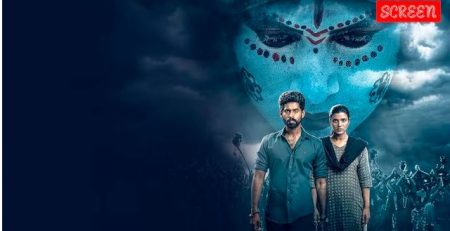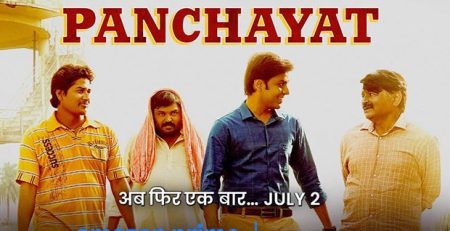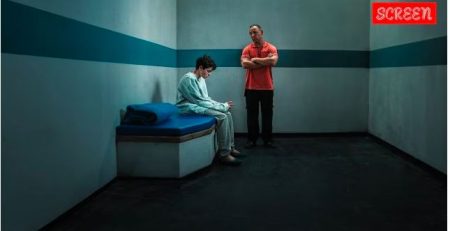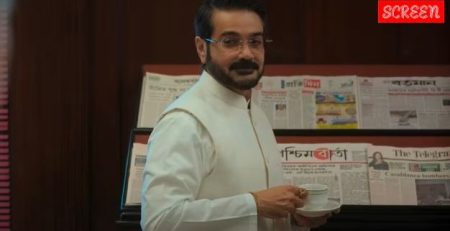Ishwak Singh on his changing dynamic with Jaideep Ahalwat in ‘Paatal Lok S2’; ‘Gandhari’ and more
Share this post
Ishwak Singh, known for his remarkable performances in acclaimed projects like Paatal Lok, Rocket Boys, and Berlin, has steadily carved a niche for himself in the entertainment industry. In a recent conversation with India Forums, Ishwak opened up about his experiences portraying complex characters, the nuances of his craft, and what it takes to stay grounded in the ever-evolving world of cinema. Here’s a deep dive into the insights he shared.
Berlin has received widespread appreciation for your portrayal of a muted and deaf character. But did the film get the recognition it should have?
Ishwak Singh: Berlin received recognition from industry veterans and audiences alike. It had a kind of penetration I didn’t anticipate. I remember shooting in the interiors of Uttar Pradesh, and people approached me at restaurants and even airports to talk about the film. The response was overwhelming. It’s true that not every project becomes a massive hit in the public domain, but Berlin didn’t go unnoticed. Industry professionals, including great filmmakers, reached out, and it has opened up exciting new opportunities for me. The recognition it has garnered is deeply fulfilling.
Watch the full interview here:
Your character Ansari in Paatal Lok is known for his righteousness. How much of yourself do you bring to this character?
Ishwak Singh: There’s always a part of me that resonates with the characters I play. For Ansari, I found parallels within myself and also drew inspiration from real-life heroes. During my preparation for Paatal Lok, I met several police officers—both ground-level sub-inspectors and young IPS officers. Hearing their stories, understanding their struggles, and witnessing their dedication was truly inspiring. These unsung heroes work tirelessly, often without appreciation. Ansari is my ode to them, capturing their spirit and the challenges they face daily.
He also added, Interacting with officers gave me a unique perspective on their lives. In season one, I focused on the experiences of sub-inspectors, while for season two, I connected with young IPS officers. Their stories of growth and perseverance deeply moved me. They deal with lawlessness daily, often understaffed and overworked, yet they never back down. This commitment inspired me to bring authenticity to Ansari’s character and tell their story with respect and sincerity.
In your career, there have been underrated roles that have stood out. What has been the most fulfilling moment in your journey?
Ishwak Singh: Fulfillment is a perspective. If I look back to where I started, I’m incredibly thankful. But I also believe in constantly pushing myself. There’s always room to do more—whether it’s exploring a wider range of characters, improving performances, or taking on more challenging roles. It’s crucial to see the glass as half-full while staying ambitious. That mindset helps me evolve as an actor and keeps me grounded amidst success and failures.
Are you self-critical of your performances? How do you balance critique and confidence?
Ishwak Singh: I’m definitely critical of my work, but I strive not to overdo it. There’s a delicate balance between critiquing yourself and being overly harsh. Acting is an intangible craft; there’s no clear “perfection.” Every performance can be improved, and feedback helps shape that growth. At the same time, I focus on staying open to criticism while maintaining confidence in my process and instincts.
Has a background in theatre help you shape your performances?
Ishwak: Teamwork is crucial in filmmaking. Unlike stage performances, where the focus is on actors alone, a film set involves multiple departments working in harmony. Everyone depends on you as the performer to deliver. They can drop the ball, but you can’t, because all eyes are on you. Being a team player is vital—it changes the dynamics on set and ensures a collaborative, successful outcome. My theater background has been foundational to everything I do in my work today. It has shaped my personality and work ethic. Spending time on stage taught me focus and presence, which is essential in acting. Even when I transitioned to films, I continued doing plays regularly. For example, last year, I performed in three plays. Theater isn’t just about honing your craft; it’s about embracing playfulness. That enjoyment often leads to revelations about the character and allows me to slip into roles with greater ease.
Ishwak: The dynamic evolves as the tables turn between the characters. It’s fascinating to explore how relationships change when roles are reversed. If someone who was once subordinate becomes a superior, how does that impact their attitude? Does it change or remain the same? This dynamic is common in professions like the police but also relatable across fields where protégés surpass mentors. It tests how much one values the guidance they once received. I believe Ansari’s character beautifully captures this nuance.
Ishwak: It’s crucial to never forget the individuals who guided you. For me, that includes my theater directors and early mentors in the industry. Even now, I step onto every set eager to learn from senior directors and masters who have decades of experience. If I ever find myself in a position of power, my respect and gratitude for these individuals would never waver.












Leave a Reply